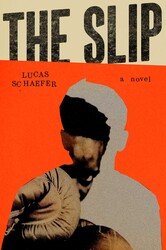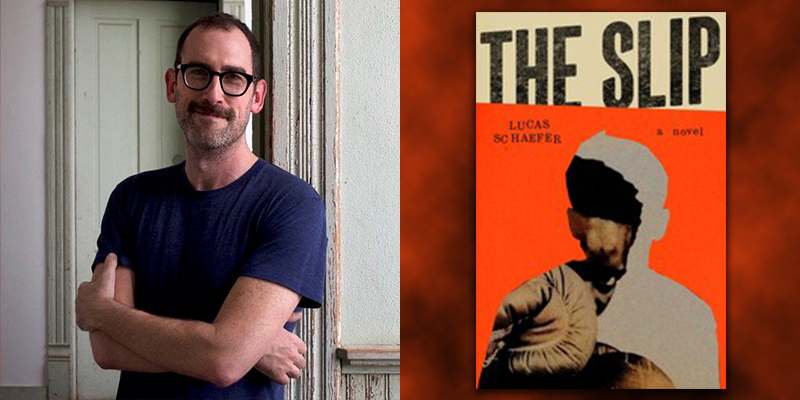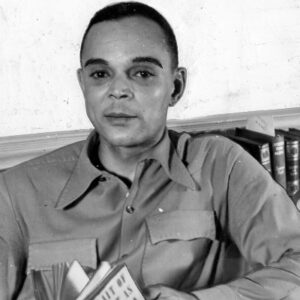Quick, picture a Texan. What did you think of? A hippie? A tech bro? A guy in a truck with a ten gallon hat? Lucas Schaefer’s new Austin-set epic, The Slip, is here to challenge those stereotypes, with an engrossing new vision of Texana for the twenty-first century.
 When troubled teenager Nathanial Rothstein comes to Austin from Connecticut to stay with his professor Uncle Bob for the summer, he gets a job at a home for the elderly and begins to visit Terry Tucker’s boxing gym, the settings combining to spark a transformation more profound than the average coming of age novel — and with more profound consequences. The novel takes its time revealing Rothstein’s ultimate fate and the shocking circumstances of his disappearance, which turn out to be as relevant to today’s headlines as one could imagine. Along with the tightly woven plot, Schaefer evokes an eclectic cast of characters who serve as memorable and idiosyncratic additions to the world of Texas letters: professors, cops, boxers, a phone sex operator, a circus-clown immigration smuggler, and a mysterious coyote inside a boxing ring. Whenever you think the plot is on the verge of resolving itself, Schaefer introduces another wrinkle, and another, until your head is pleasantly spinning with people, places, events and ideas.
When troubled teenager Nathanial Rothstein comes to Austin from Connecticut to stay with his professor Uncle Bob for the summer, he gets a job at a home for the elderly and begins to visit Terry Tucker’s boxing gym, the settings combining to spark a transformation more profound than the average coming of age novel — and with more profound consequences. The novel takes its time revealing Rothstein’s ultimate fate and the shocking circumstances of his disappearance, which turn out to be as relevant to today’s headlines as one could imagine. Along with the tightly woven plot, Schaefer evokes an eclectic cast of characters who serve as memorable and idiosyncratic additions to the world of Texas letters: professors, cops, boxers, a phone sex operator, a circus-clown immigration smuggler, and a mysterious coyote inside a boxing ring. Whenever you think the plot is on the verge of resolving itself, Schaefer introduces another wrinkle, and another, until your head is pleasantly spinning with people, places, events and ideas.
Schaefer, who’s lived in Austin since 2006, aimed to write a story unlike any he’d seen in his graduate classes at The New Writers Project at the University of Texas. And in the process, he discovered a love of the crime novel and a talent for writing characters with secrets, who aren’t what they seem. I spoke to Lucas by zoom about our shared home state and his sprawling Texas epic for the 21st century.
Are you from Texas originally?
No, I’m from Newton, Massachusetts, like Nathaniel Rothstein in the book.
When you did get to Texas and eventually studied literature at graduate school, what did you read? Who influenced you?
In my last semester, I took an independent study with Don Graham, who has passed away, but was a scholar of Texas literature. And he gave me this list. Each week we talked about a book. And this is a funny answer, because our writing styes are nothing alike, but Cormac McCarthy — the guy who knew how to write a plot. He moved it along. For all of the literary and all of the wonderful language, he really could structure a book. And even a book like No Country for Old Men, which is almost like a screenplay. That was so useful because I was like, okay, this is how you tell a story. But that class was interesting because I didn’t really see my experience in Austin reflected at all, which makes sense because we were reading older writers. So I was definitely interested in writing about my community in kind of an epic way like Larry McMurtry, or Cormac McCarthy, these sort of big, epic Texas stories, and I wanted to do that for Austin.
I love that as like a brief for what you’re doing. Austin is a place that’s famous for changing all the time. And when things change, things can get lost. People and places can get lost. Identities.
It’s complicated because on one hand there are restaurants that I love that no longer exist and people being priced out of the city, maybe including me. But I also think change is often good. One of the things that’s similar between Austin and many of the characters in this book is they do lose their old identities, but oftentimes new opportunities present themselves because of their change. I didn’t want to write a book about, ‘the old Austin has gone’— that kind of song and dance.
Bringing Nathaniel Rothstein into Austin as an outsider, that’s a classic inciting incident — a stranger comes to town.
One of my most enduring memories of coming to Austin for the first time was going to a fundraiser that a friend was running for a nonprofit, and Bill Clinton was the guest of honor. I wore a suit, and everyone thought I was in the Secret Service because there were people in shorts, there were people in Hawaiian shirts and flip flops. And that is not the way of the Northeast I came from. Like me, Nathaniel comes from this more buttoned up place, and he’s this kid who’s uncomfortable in his body and uncomfortable in his skin. He’s wearing his giant Patriots hoodie. And of course, Nathaniel has the typical teenage reaction of, like, ‘this is gross, I’m not into this,’ but then it’s, like, ‘Take off your giant sweatshirt, Nathaniel, the water is warm.’ And Nathaniel became this through line, and this way to explore identity around all of these other characters, who are sort of either incidentally or urgently related to him.
Could you talk about how you thought about The Slip as a crime book?
The crime element became more essential deeper and deeper into revision, because I started to think more about how the mystery would affect all of these characters through time. I started reading a lot of crime fiction. I read Attica Locke and S. A. Cosby and Patricia Highsmith. The Talented Mr. Ripley was important for me, because Nathaniel, in his own way, a Tom Ripley character.
In some ways he’s maybe less sinister than Tom Ripley, but he has some of the same qualities. Richard Price was another one — reading like Lush Life and The WHITES. The crime books taught me more about plot, and as the story built, elements of the mystery that I hadn’t seen being connected appeared — this is how you connect A and B. Another thing I was thinking about is some objects that travel through the book. Nathaniel’s drivers’ license is like this — if a kid goes missing and he has a license, what happened to that license? Where did it go? And so suddenly, oh, yeah, you can follow the license. That’s a way to expand and complicate the mystery.
Is your next novel going to have a crime element?
I do think there will be a crime element. I have some ideas. I really enjoy writing crime. I like the the grittiness of it, and the dark humor. This book taught me how to write a plot, and now I want to level up on that.
A lot of issues you discuss in the book, including gender nonconformity, have become even more prominent in the news since you began the book in 2013.
I didn’t go in thinking, I want to talk about this issue, this issue and this issue, but I do think I went in with this feeling of, this is a representation of Texas that is just as legitimate as any other. And I’m not going to be bullied into saying, oh, because I’m from a city, I’m not a real Texan, or because I moved here 19 years ago, I’m not a real Texan. I live here. My family is here. It’s a Texas book, deal with that, is my feeling.
Many different people in the book are changing their identities. This is also a staple of the crime genre, right? Transforming into someone else.
When I think about Austin in popular culture, I think about Dazed and Confused; I think about Joe Rogan and Elon and tech. And those are obviously elements of Austin, but that was never my experience of Austin. My experience with Austin was going to a boxing gym when I first moved here and finding it to be this interesting entryway into the city. I was 24, but my introduction to Austin wasn’t the university. It was a much more multi-generational.
How did that experience influence the writing of this book?
My first job was driving this big white van around New York and New Jersey, full of canvassers, trying to get George W. Bush out of office. After W. won in 2004, the consensus was, ‘oh it was gay marriage that tilted the election.’ And here I was, this gay kid who’d been running all over, trying to get rid of George W. Bush. Around the time there was all of this talk about who’s a real American. And ‘real Americans’ voted for George W. Bush. One of the ways I was able to write so many characters who are different from me, at least on the surface, is they all share that feeling of, in one way or another, being told, ‘you are not real, you emotions are not valid, you are not important. You’re a side character and the real people are the protagonists.’ The book is kind of the revenge of the side characters, because they all say, ‘no, I’m going to be the main character today.’

















